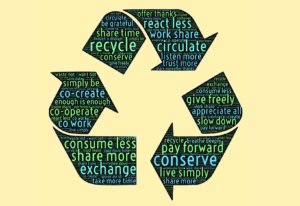 Getting Started on the Genesis Covenant: Reduce Energy Use, Save Money, and Care for God’s Creation
Getting Started on the Genesis Covenant: Reduce Energy Use, Save Money, and Care for God’s Creation
On the surface, the Genesis Covenant is about reducing greenhouse gas emissions — and thus fossil fuel energy use — from facilities maintained by your parish, school, diocese, or camp and conference center. Just below the surface, the covenant emerges from a place of gratitude for the beauty and gifts of God’s creation. As the Psalmist proclaims, “The Earth is the Lord’s,” and so all we have and enjoy is a gift. Our covenantal relationship with God calls us to preserve that which God loves: all Creation. This guide begins with an introduction to the Genesis Covenant itself and why it’s an important effort within faith communities. The guide continues with summary discussions in the areas of energy audits, financing, and carbon footprints — and suggests resources in those areas. Finally, there is a section on measuring home/individual carbon footprints, and a section designed to answer some important questions that might come up in the implementation of the Genesis Covenant.
What Is the Genesis Covenant?
Most simply stated, the covenant challenges faith institutions to reduce the greenhouse gas emissions of each facility they maintain by 50% in ten years. The Episcopal Church adopted the Genesis Covenant at the 76th General Convention in July 2009. In so doing, the church explicitly accepted that challenge, and implicitly recognized the importance of taking practical actions to
address climate change.
Keep it Simple
Before getting into discussions about financing, audits, and carbon footprints — which can sometimes be overwhelming — probably the most important thing to emphasize is to “keep it
simple” and “get started.” Remember, the easiest way to save energy is by not using it. Your parish may not be able to afford new appliances, but it can probably install weather stripping and turn off lights more consistently. After all, more often than not, the most effective way to begin reducing greenhouse gas emissions —reducing energy use — is through relatively simple conservation steps such as:
– Turning off lights
– Turning down the heat/turning up the air conditioning
– Installing weather stripping/caulking around windows and doors
– Insulating hot water heaters, and so on
Learn more: DOWNLOAD Genesis_Convenant
31 page guide for congregations
